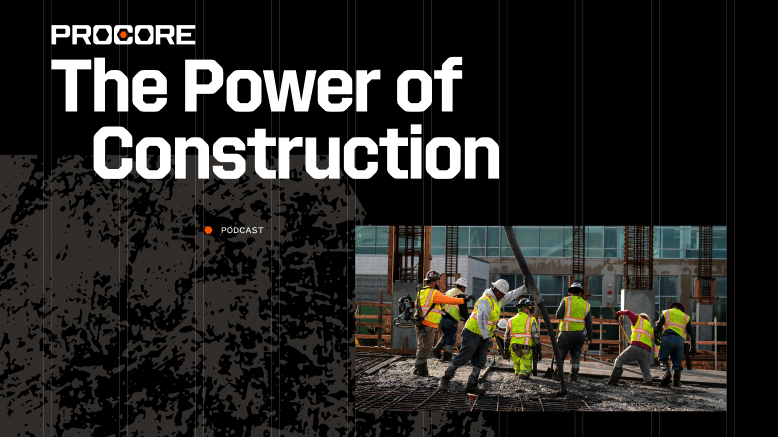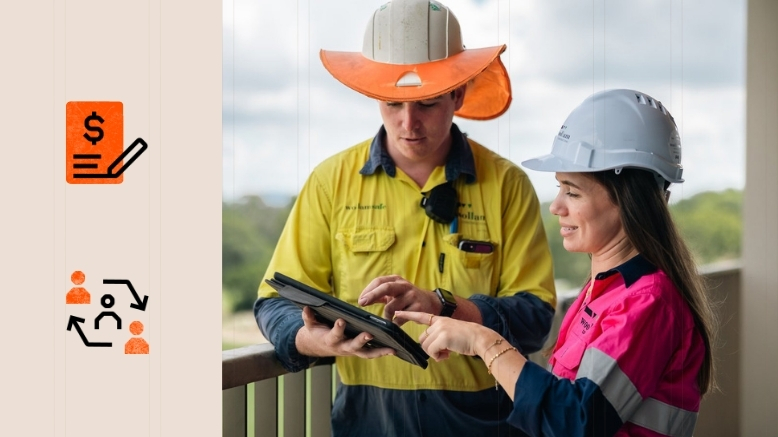— 7 min read
A Winning Strategy: How Bidding Strategies in Construction Drive Success


Last Updated Oct 3, 2025

Bianca Holtier Coury
Education Audience Marketing
19 articles
Bianca Holtier Coury spent 15+ years in various roles managing construction projects, such as Preconstruction Team Lead, Purchasing Agent, and Project Manager. She has a wealth of experience in all project phases, including managing project schedules and budgets, bid management, and coordinating vendors and subcontractors. Bianca is an Associate Member of AIA and a LEED Green Associate. She currently serves as Director of Partnerships for the Construction Progress Coalition. Bianca holds a BA in Urban Design and Architecture Studies from NYU. She lives in Cleveland, OH.

Kacie Goff
Contributing Writer
93 articles
Kacie Goff is a construction writer who grew up in a construction family — her dad owned a concrete company. Over the last decade, she’s blended that experience with her writing expertise to create content for the Construction Progress Coalition, Newsweek, CNET, and others. She founded and runs her own agency, Jot Content, from her home in Ventura, California.
Last Updated Oct 3, 2025

When an athletic franchise starts a game, they have a plan to win. The coach has spent time developing the game plan, and the players have familiarized themselves with it and how it pertains to their role. The team’s owner has put support in place so that the players and coach can execute that game plan. When it all comes together, they celebrate a win.
With general contracting firms, the construction bidding process isn’t so different. Instead of a game plan, it should be informed by a bidding strategy. Firm owners set key players in preconstruction (e.g., directors of preconstruction) up for success to coach various players through the process. And when those players have a strategy to guide them, they can best fulfill their role and help their team toward a win. This time, though, that win culminates in a contract awarded to their firm.
Just like a sports team could quite literally fumble without a game plan, firms that operate without a strategy leave room for added obstacles. As a result, contracting firms benefit from putting some work into fleshing out a solid strategy. Applying some best practices and forward-thinking helps bidding strategies in construction function their best, in turn helping the team deploying the strategy to succeed.
Table of contents
Developing a Bidding Strategy
Plenty of different companies have different types of bidding strategies for construction projects. Successful companies adapt their strategies to the types of projects they specialize in, while also scaling the strategy up with the firm’s growth.
However, one thing is always true: successful bidding strategies in construction companies always take a holistic approach. The whole team should be in agreement about what the strategy entails, and how that applies to the entire bidding process — and the work that happens if the contract gets awarded. The strategy should be fully mapped out from a zoomed-out perspective.
To create a holistic bidding strategy, stakeholders should ask questions like:
- Who are all the key players who will be involved in the process?
- What does the process look like?
- What workflows move that process forward?
- What technology will be leveraged during the process, and how can all relevant team members be trained on how to use it?
- What data environment will the bidding be performed in?
- How will the firm bridge the gap between the bid and what happens after it’s submitted?
- What metrics will the company track in relation to the bidding process?
- How will the company measure success?
For example, when developing bidding strategies in construction firms, those involved should determine if bidding is to be handled solely by business development, or if certain other teams from preconstruction — like estimating teams — should be looped in.
All of this should happen well before the firm considers a specific invitation to bid (ITB) or request for proposal (RFP). That way, team members know what’s expected and what success looks like at every step between receiving the bid package and submitting the bid.
Tailoring the Bidding Strategy
While the team members involved will tailor the bid to the project requirements, the bidding strategy should be fully built out and locked in. That way, every employee can refer to it at any stage of the bidding process on any project.
That doesn’t mean all bidding strategies in construction should be the same, though. Firms benefit from customizing their bidding strategy to the type of work they do — and to the type of contracts they want to win. A random industry sampling would uncover different types of bidding strategies in construction companies of various sizes, different locations, etc.
Some areas to take into account when tailoring a bidding strategy to a specific company include:
- The types of projects the firm wants to take on (public vs. private)
- The types of clients with which the company wants to work
- Where in the preconstruction process the firm wants to get involved (e.g., after design, if the firm only plans to bid on design-bid-build projects)
- The location range in which the firm can provide services
- Project parameters that mean the company will always decline to bid
If the firm primarily aims to work with owners who favor selective tendering, for example, a key part of their bidding strategy needs to be building relationships with the appropriate people to get added to those tendering pools. If the company mainly wants to take on government contracts, it needs to build compliance with the required stipulations into its bidding strategy.
Well-Distributed Bidding Strategies Help All Players
Once the bidding strategy has been developed, companies benefit from distributing it to every staff member who has any interaction with the bidding process.
They may even choose to take things a step further by converting the strategy into actionable steps. Providing a checklist of strategy-informed to-dos that must happen on every bid helps all team members ensure they’re aligned with the strategy. Not only does this allow for repeatable work, but it also makes it easier to identify what’s not working so those parts of the process can be refined.
Ultimately, bidding strategies in construction do little good if only a few people know about them. Communicating them to the entire team gets everyone on the same page so they can move forward together — and in the direction the strategy dictates.
Soft Skills Support Strong Bidding Strategies in Construction
While companies deploy various types of bidding strategies in construction, communication always plays a huge role in the success of those strategies. In fact, this soft skill can make or break a bid.
Communicating the strategy to the relevant personnel is just the first step.
The strategy should also lay the groundwork for open communication between all parties as the bidding process moves forward. Directors of preconstruction need to communicate with their teams to keep the bid on track and strategy-aligned. The people creating the bid need to communicate with estimators to perform the necessary cross-checks. The easier information can flow between people and teams, the more the bid can be created backed by the most relevant data.
Technology and collaboration can both play a role here. If someone involved in creating the bid needs site information but is at the office, for example, a video call with another team member during their site walkthrough can provide critical insight.
Soft skills like communication and relationship management are vital—and they don’t just apply internally. Firms that want to deploy successful bidding strategies in construction also need to encourage open lines of communication between their team and the potential project owners.
As a best practice, companies can encourage teams to ask project owners for more information when they need it. Pre-bid requests for information (RFIs) allow firms to best calibrate their bid to the specific project. Communicating with the owner can also mean that the bid comes in better aligned with their expectations, decreasing the risk of looking worse than expected due to bid leveling.
Similarly, open communication with trade partners (when the project allows for it) can help companies create better bids. Establishing good relationships with subcontractors makes getting information — from labor availability to material pricing — easier when working on a bid.
Looking Ahead: Data-Informed Bidding Strategies in Construction
Companies shouldn’t just create and deploy bidding strategies and then assume they’ll function long-term. Instead, they can use two tools to continuously improve their strategy.
- Data tracking: Once the company has defined bidding success, they need to track metrics associated with that success. For example, they might track things like contracts awarded per bid submitted via certain portals. Or they might evaluate success rates based on whether or not a conversation was had with internal estimators or trade partners, or when a pre-bid RFI was submitted. All of this data can inform the company’s strategy moving forward.
- Regular check-ins: With a semiannual or annual audit of bidding strategies in construction firms, companies can determine what’s working and what isn’t. To be most effective, these audits should solicit feedback from team members outside the preconstruction team.
In the same way that top-performing athletes review their game tapes to improve their play, construction companies can track and evaluate the performance of their bidding strategy to continuously improve. Doing so means winning more work, supporting the company’s overall success.
Prove your project management software is profitable.
See Procore and Dodge Data & Analytics' 2025 Dodge ROI Report deep dive.

Was this article helpful?
Thank you for your submission.
100%
0%
You voted that this article was . Was this a mistake? If so, change your vote
Scroll less, learn more about construction.
Subscribe to The Blueprint, Procore’s construction newsletter, to get content from industry experts delivered straight to your inbox.
By clicking this button, you agree to our Privacy Notice and Terms of Service.
Thank you!
You’re signed up to receive The Blueprint newsletter from Procore. You can unsubscribe at any time.
Categories:
Written by

Bianca Holtier Coury
Education Audience Marketing | Autodesk
19 articles
Bianca Holtier Coury spent 15+ years in various roles managing construction projects, such as Preconstruction Team Lead, Purchasing Agent, and Project Manager. She has a wealth of experience in all project phases, including managing project schedules and budgets, bid management, and coordinating vendors and subcontractors. Bianca is an Associate Member of AIA and a LEED Green Associate. She currently serves as Director of Partnerships for the Construction Progress Coalition. Bianca holds a BA in Urban Design and Architecture Studies from NYU. She lives in Cleveland, OH.
View profile
Kacie Goff
Contributing Writer | Procore Technologies
93 articles
Kacie Goff is a construction writer who grew up in a construction family — her dad owned a concrete company. Over the last decade, she’s blended that experience with her writing expertise to create content for the Construction Progress Coalition, Newsweek, CNET, and others. She founded and runs her own agency, Jot Content, from her home in Ventura, California.
View profileExplore more helpful resources

What Happens When Data Drives the Business?
Construction has long been seen as a low-margin industry. But what if the real problem isn’t the margins—it’s how decisions get made? In episode 17 of The Power of Construction,...

Vet Contractors with Confidence: A Guide to Smart Bidder Selection
Selecting the right bidder is one of the most consequential decisions a construction team makes — yet it often happens under tight deadlines, with limited visibility into the long-term implications....

The Construction Bid Interview & Follow-up: Closing the Deal
During construction project bidding, the interview is often the last part of the request for proposal (RFP) process and one of the most influential. For teams that advance to the...
Construction Business Development: Tracking and Winning the Right Opportunities
Construction business development isn’t just a response to deadlines: It’s a long-term strategy rooted in focus, visibility and timing. Delays, funding gaps and market pressure have made it harder to...
Free Tools
Calculators
Use our calculators to estimate the cost of construction materials for your next project.
Templates
Find a template to help you with your construction project tasks.
Material Price Tracker
Get the latest U.S. retail prices and view historical trends for common building materials.
Glossary
Explore key terms and phrases used in the industry.
